Seunggyu Lee
PersonaCraft: Personalized Full-Body Image Synthesis for Multiple Identities from Single References Using 3D-Model-Conditioned Diffusion
Nov 27, 2024



Abstract:Personalized image generation has been significantly advanced, enabling the creation of highly realistic and customized images. However, existing methods often struggle with generating images of multiple people due to occlusions and fail to accurately personalize full-body shapes. In this paper, we propose PersonaCraft, a novel approach that combines diffusion models with 3D human modeling to address these limitations. Our method effectively manages occlusions by incorporating 3D-aware pose conditioning with SMPLx-ControlNet and accurately personalizes human full-body shapes through SMPLx fitting. Additionally, PersonaCraft enables user-defined body shape adjustments, adding flexibility for individual body customization. Experimental results demonstrate the superior performance of PersonaCraft in generating high-quality, realistic images of multiple individuals while resolving occlusion issues, thus establishing a new standard for multi-person personalized image synthesis. Project page: https://gwang-kim.github.io/persona_craft
Efficient Single-Image Depth Estimation on Mobile Devices, Mobile AI & AIM 2022 Challenge: Report
Nov 07, 2022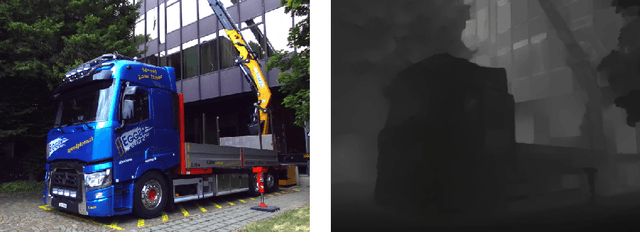

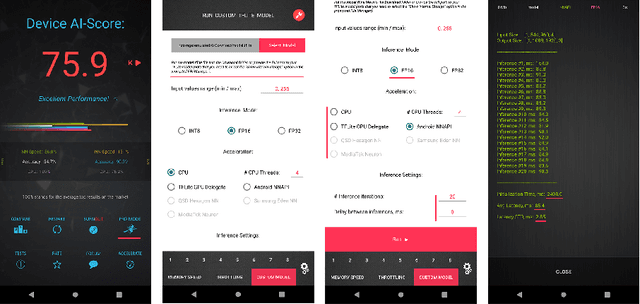
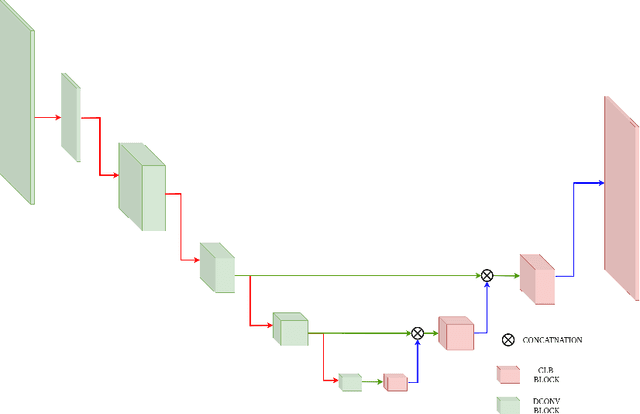
Abstract:Various depth estimation models are now widely used on many mobile and IoT devices for image segmentation, bokeh effect rendering, object tracking and many other mobile tasks. Thus, it is very crucial to have efficient and accurate depth estimation models that can run fast on low-power mobile chipsets. In this Mobile AI challenge, the target was to develop deep learning-based single image depth estimation solutions that can show a real-time performance on IoT platforms and smartphones. For this, the participants used a large-scale RGB-to-depth dataset that was collected with the ZED stereo camera capable to generated depth maps for objects located at up to 50 meters. The runtime of all models was evaluated on the Raspberry Pi 4 platform, where the developed solutions were able to generate VGA resolution depth maps at up to 27 FPS while achieving high fidelity results. All models developed in the challenge are also compatible with any Android or Linux-based mobile devices, their detailed description is provided in this paper.
Efficient and Accurate Quantized Image Super-Resolution on Mobile NPUs, Mobile AI & AIM 2022 challenge: Report
Nov 07, 2022
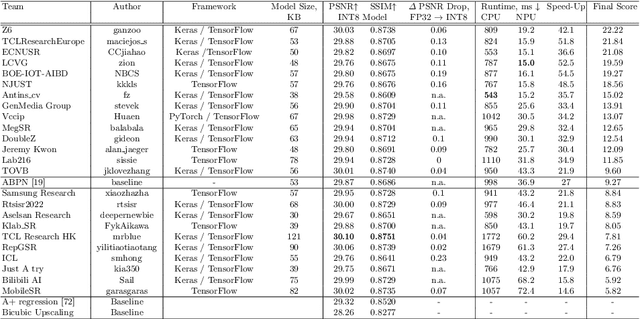
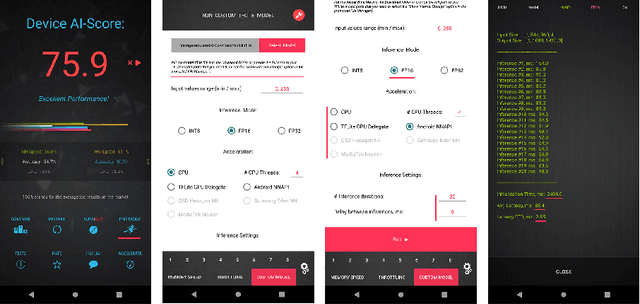
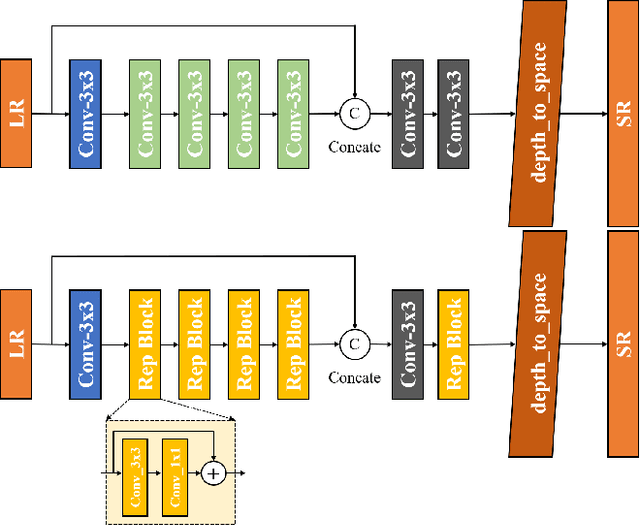
Abstract:Image super-resolution is a common task on mobile and IoT devices, where one often needs to upscale and enhance low-resolution images and video frames. While numerous solutions have been proposed for this problem in the past, they are usually not compatible with low-power mobile NPUs having many computational and memory constraints. In this Mobile AI challenge, we address this problem and propose the participants to design an efficient quantized image super-resolution solution that can demonstrate a real-time performance on mobile NPUs. The participants were provided with the DIV2K dataset and trained INT8 models to do a high-quality 3X image upscaling. The runtime of all models was evaluated on the Synaptics VS680 Smart Home board with a dedicated edge NPU capable of accelerating quantized neural networks. All proposed solutions are fully compatible with the above NPU, demonstrating an up to 60 FPS rate when reconstructing Full HD resolution images. A detailed description of all models developed in the challenge is provided in this paper.
 Add to Chrome
Add to Chrome Add to Firefox
Add to Firefox Add to Edge
Add to Edge